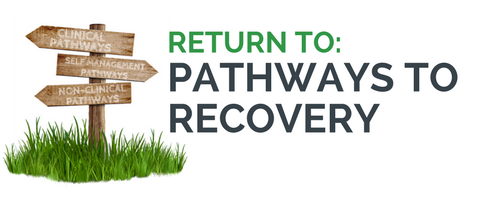Recovery Residences
(Related: Sober homes; sober living homes; Oxford Houses; Halfway Houses)
Non-medical settings designed to support recovery from substance use disorders, providing a substance-free living environment commonly used to help individuals transition from highly structured residential treatment programs back into their day-to-day lives (e.g., obtaining employment and establishing more permanent residence).
Recovery residences support individuals by providing a safe living environment and readily available community of recovery-related social support.
Virtually all encourage or require attendance at 12-step mutual-help organizations like Alcoholics Anonymous or Narcotics Anonymous, but recovery homes have varying degrees of structure and built-in programmatic elements:
- LENGTH OF STAY: Some may have a limited, or otherwise predetermined, length of stay, while others may allow individuals to live there for as long as necessary provided they follow the house rules.
- MONITORING: Some, but not all, provide monitoring to maintain substance-free, recovery-supportive living environments and help facilitate house members’ progress by implementing a number of rules and requirements (i.e., mutual-help organization attendance, attendance at house meetings, curfews, restrictions on outside employment, and limits on use of technology). Typically as individuals successfully follow these rules over time, restrictions become more lenient and individuals have greater latitude in their choices both in and outside the recovery residence.
- SIZE: While recovery residences range in the number of individuals living there at any given time, there are typically at least 6-8 residents of the same gender.
The degree of monitoring and regulation in recovery residences varies widely from setting to setting. Given that recovery residences do not provide treatment, state regulations applicable to addiction treatment do not apply to them. That said, there are some umbrella organizations (see below) that promote quality assurance and oversight at recovery residences; they may even offer formal certification for residences that meet and adhere to these guidelines. Individuals considering recovery residences for themselves or their loved ones are strongly encouraged to inquire about any regulatory organizations with which a potential residence is affiliated and whether or not it is certified in states where certification is available.
PROMINENT ORGANIZATIONS
- National Alliance of Recovery Residences (NARR): Known as the national voice of recovery housing, NARR was created in 2011 after a number of high-profile cases where recovery residence providers committed fraudulent acts for personal gain. NARR established a certification program and national standards for recovery residences in the United States, focusing on the components of quality, access, and choice, and developed a written code of ethics for recovery housing. Some, but not all, states have recovery residence organizations affiliated with NARR. These state-level organizations may offer formal certifications that adhere to NARR’s standards (e.g., Massachusetts Alliance for Sober Housing and Southern California’s Sober Living Network)
- Oxford Houses are a specific type of recovery residence with a manualized set of rules and expectations. New houses must be chartered by the umbrella organization, Oxford House, Inc.
WHAT DOES THE SCIENCE SAY ABOUT MUTUAL-HELP ORGANIZATIONS?
A series of studies on Oxford Houses suggest they promote a host of positive outcomes at substantially lower costs compared to standard continuing care after residential treatment. These outcomes include not only substantially better abstinence rates, but also increased rates of employment and lower rates of criminal recidivism. Less is known scientifically about recovery residences apart from Oxford Houses, though existing naturalistic research (where researchers observe naturally-occurring behaviors and measure outcomes over time) shows individuals residing in recovery residences may experience improved substance use and functional outcomes. Also, among recovery residence members, more 12-step mutual-help participation and lower levels of drinking and drug use in one’s social network predict better substance use outcomes and lower likelihood of arrest over time.
KEY READINGS
- List of Key Readings
-
- Jason, L. A. & Ferrari, J. R. (2010). Oxford House recovery homes: Characteristics and effectiveness. Psychological Services, 7(2), 92-102. doi: 10.1037/a0017932
- Lo Sasso, A. T., Byro, E., Jason, L. A., Ferrari, J. R., & Olson, B. (2012). Benefits and costs associated with mutual-help community-based recovery homes: The Oxford House model. Evaluation and Program Planning, 35(1), 47-53. doi: 10.1016/j.evalprogplan.2011.06.006
- Polcin, D. L., Korcha, R. A., Bond, J., & Galloway G. (2010). Sober living houses for alcohol and drug dependence: 18-month outcomes. Journal of Substance Abuse Treatment, 38(4), 356-365. doi: 10.1016/j.jsat.2010.02.003


